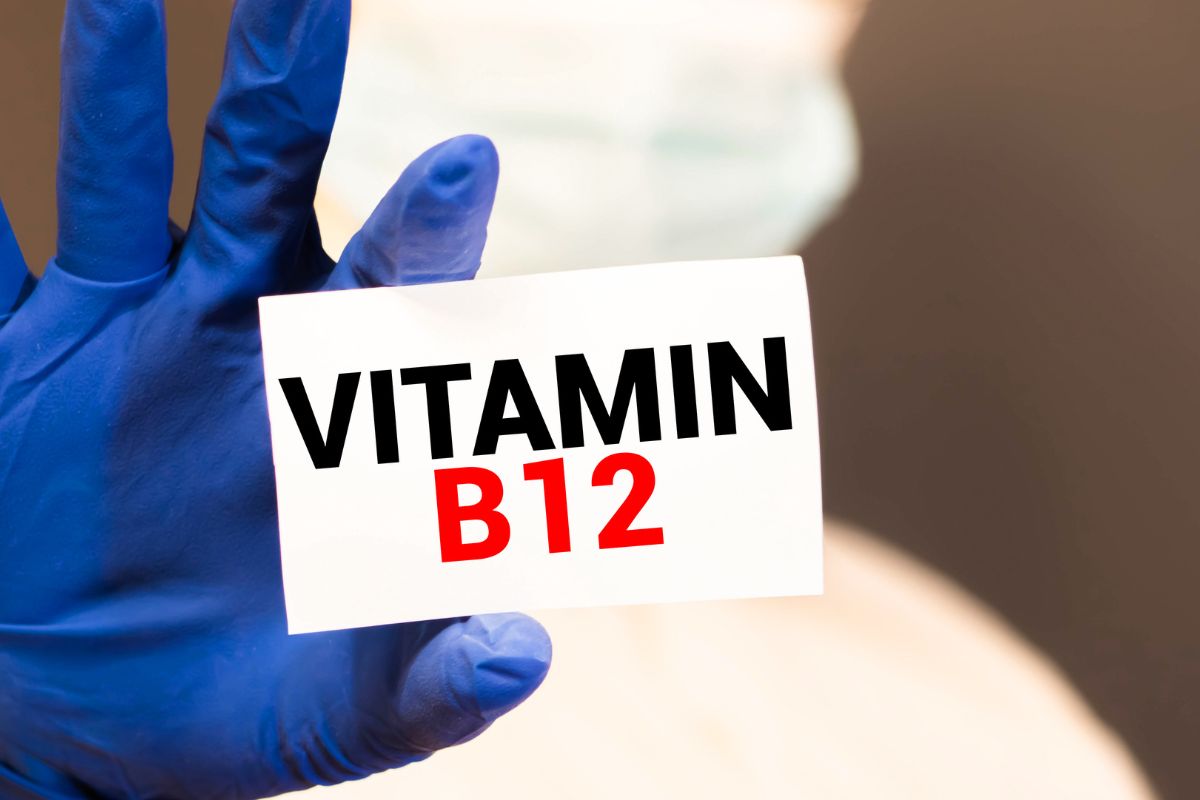Vitamin B12, or cobalamin, is considered an indispensable vitamin due to its importance for the brain, the red blood cells, and important processes like DNA synthesis. It is naturally found in animal products, including meat, eggs, and dairy, but can also be purchased in the form of dietary supplements or injections. Despite the fact that vitamin B12 is considered safe and sometimes required for maintaining health, there still are multiple clinical questions: can vitamin B12 cause side effects?
In this article, we’ll discuss what the scientific literature has to say about potential side effects of B12, factors that can lead to adverse reactions, how much is too much B12, and important information US citizens need to be aware of regarding supplements.
Why Do People Take Vitamin B12?
Understanding the side effects of Vitamin B12 is easier when you understand its reasons for use in the first place. Here are some reasons why individuals could suffer from a Vitamin B12 deficiency:
- Older Adults
- Vegans/Vegetarians: The reason is, B12 comes from animal products.
- People Suffering from Gastro Issues: These include Celiac, Crohn’s, or even post-weight-loss surgery.
- Individuals Under Certain Medications: Go for Metformin under Diabetes or Proton Pump Inhibitors for Acidity.
In the United States, Vitamin B12 supplements are available in various forms: Tablets, Sublingual lozenges, nasal sprays, and even injections. They aim to treat or prevent a deficiency, boost energy, or improve cognitive functions.
Are There Side Effects of Vitamin B12?
Risk levels are low when it comes to the side effects of Vitamin B12. The reason being, it is a soluble vitamin, which means any excess is flushed away through urine. Although there are few to no risks, here’s what happens in rare cases:
1. Mild Side Effects
Some people may experience minor side effects, especially when taking high doses of Vitamin B12 supplements or injections:
- Headache
- Nausea
- Diarrhea
- Anxiety or restlessness
- Skin rash or itching
All symptoms pointed out are short-term, which means they will solve themselves without the intervention of medication.
2. Allergic Reactions
Although uncommon, some individuals may experience allergic reactions to Vitamin B12 supplements. This type of reaction is marked by:
- Swelling of the face, lips, or tongue
- Difficulty breathing
- Hives or a widespread rash
- Chest tightness
If you or anyone else finds signs of these symptoms after consuming Vitamin B12, it is best to call for medical help right away. These types of reactions are extreme and require immediate care.
3. Injection Site Reactions
For those receiving Vitamin B12 injections, especially intramuscular ones, localized side effects can occur:
- Pain or tenderness at the injection site
- Redness or swelling
- Mild bruising
These reactions are generally harmless and subside within a few hours to days.
Who Is More Likely to Experience Side Effects?
Certain individuals are more prone to Vitamin B12-related side effects, particularly when taking high doses or receiving regular injections.
1. People with Sensitivities or Allergies
Some B12 formulations contain preservatives or additives such as cobalt, which may trigger allergic reactions in sensitive individuals.
2. People with Leber’s Disease
Vitamin B12 supplementation is not recommended for people with Leber’s hereditary optic neuropathy, a rare genetic condition. High doses of B12 in these individuals may accelerate vision loss.
3. People with Polycythemia Vera
Vitamin B12 can increase red blood cell production, so individuals with polycythemia vera (a condition that causes excess red blood cells) should use B12 under strict medical supervision.
Is It Possible to Take Too Much Vitamin B12?
Unlike fat-soluble vitamins such as A or D, Vitamin B12 is not stored in large amounts in the body. Any excess is excreted through urine. For this reason, overdose is rare.
However, megadoses (for example, 5,000 mcg or more per day) are sometimes used in clinical settings, especially to treat severe deficiencies or conditions like pernicious anemia. Even then, side effects are rare.
That said, some observational studies have linked very high levels of Vitamin B12 in the blood to:
- Acne-like skin eruptions
- Increased risk of certain cancers (though the evidence is not conclusive)
- Kidney stress in people with pre-existing kidney conditions
Recommended Daily Intake in the U.S.
According to the National Institutes of Health (NIH), the Recommended Dietary Allowance (RDA) for Vitamin B12 varies by age:
- Adults: 2.4 mcg/day
- Pregnant women: 2.6 mcg/day
- Breastfeeding women: 2.8 mcg/day
Most multivitamins in the U.S. contain between 6 and 100 mcg of B12 — far above the RDA, but still considered safe due to its water-soluble nature.
Interactions With Medications
Vitamin B12 can interact with certain medications, which may either reduce its absorption or amplify its effects. Common medications include:
- Metformin (used for diabetes) can lower B12 absorption over time
- Proton pump inhibitors (PPIs) like omeprazole or lansoprazole, reduce stomach acid, affecting B12 absorption
- Antibiotics may interfere with B12 lab test results
- Chloramphenicol may interfere with red blood cell response to B12 in people with anemia
If you’re on long-term medications and taking B12, consult your doctor or pharmacist.
Who Should Consider B12 Supplementation?
For most healthy Americans who eat a balanced diet including animal products, B12 deficiency is rare. But if you belong to any of the following groups, you might benefit from supplementation:
- People over 50 (reduced stomach acid affects B12 absorption)
- Vegans and strict vegetarians
- Individuals with gastrointestinal disorders
- People taking medications that interfere with absorption
- Those recovering from surgery that affects the stomach or small intestine
Tips for Safe Use of Vitamin B12
- Choose the right form: If swallowing pills is hard, try a sublingual tablet or nasal spray.
- Start with lower doses: Unless directed by a healthcare provider, avoid megadoses.
- Check for additives: Especially if you have allergies or sensitivities.
- Regular blood tests: If you’re supplementing long-term or have underlying conditions.
- Talk to your doctor: Especially if you have pre-existing conditions or are pregnant.
The Bottom Line
The majority of the population, specifically in the United States, can safely consume Vitamin B12 either through diet or as part of a multivitamin without any health complications. There is a possibility of experiencing nausea, headaches, or a mild rash; however, these conditions are typically inconsequential and transient.
The more severe types of side effects, such as allergic reactions of some kind, are rather infrequent and tend to occur with the injectable forms or due to sensitivity to some of the preservatives. Those suffering from specific genetic or sanguine conditions should be more cautious and obtain a medical consultation for advice.
As with any other supplement, balanced use as well as an understanding of an individual’s health requirements with regard to other supplements used, accompanied by guidance from a healthcare expert, seems to be the best approach.












